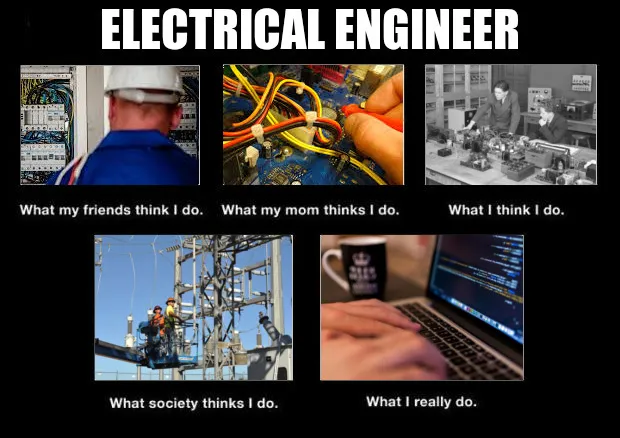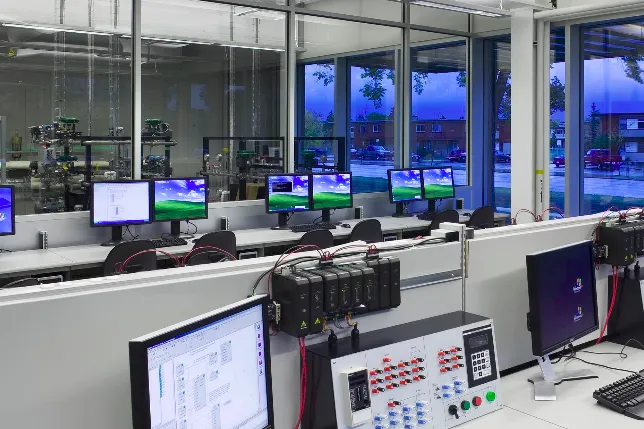
Picture Sources [1] [2] [3] [4] [5]
With respect to photo 4, all photos provided with distribution rights are considered considered CC0 equivalent for US government photos.
Today I am going to talk about Electrical Engineering (what I am going to school for technically) with things like what it is and why I chose it, and more I guess. This is a more personal experience (of like my classes) over a detailed explanation of what electrical engineering actually is. Now it is important to add that I am first year engineering which for most would mean that I would be taking a general engineering year first and then specialize in year 2, however you can get around this by taking a 2 year tech program and then go back and do a 3 semester (1 year technically) advanced course and leave with your engineering degree (or you could just be the engineering tech making an estimated 60,000-120,000 per anum salary). Now I took the 2 year tech program as my initial state for a couple of reasons, first you can do your tech program co-op (working while you do it, or making money), secondly because its about $12,000 cheaper for those 2 years (or around 32,000 cheaper in total), the rate that engineering tech students get hired is around 8-12% (depending on field) higher than engineering students, and they make, for the most part, the exact same amount. The only difference is that engineering techs do not get a seal and thus have to work in conjunction with an engineer. How I know all of this is that I did job shadowing, in high school, with a few different companies that had local setups (such as Stantec, DOW, Nova Chemicals, etc) and each time I basically got told the same thing, go tech instead of degree for the reasons above. Some of the engineers I followed around even took the path (tech and then 3 semester to degree) to get their engineering ticket.
Classes taken in Semester 1:
Communications (English)
Mathematics and Calculus I (Mathematics, simple)
Electronic Measurements (Building and testing circuits to show s our theory work in practice. Personal favorite!)
Embedded Systems I (Basically an introduction to filesystems, typing etc. Very basic)
Circuits I - Passive Circuits (Resistor, Inductor, and Capacitor circuits in Parallel and Series for DC)
Networking and Data Communications (Basically a class on the technical nomenclature, honestly most of the class was naming things)
Digital Fundamentals (Safe handling of electrostatic components and circuit diagrams)
The things in brackets are my comments on the class to give some context as to what it actually means. My first semester didn't have any labs (thank god) but in my second semester I have 2 and a half a week (every second week I have a lab)

One of my classrooms this semester.
So why I chose electrical engineering, or engineering in general. First of all, I don't really want to be an engineer (in the modern context) as in I do not care about inventing something that changes the world. My interest instead was always more to do with electronics and electrical systems (like programming, how computers work, etc) and considering the extreme competitiveness of computer science I decided to go down a level into something more application specific. Since electrical engineering is used so often (seriously, even pools usually have an EE or two or three on staff to run things, or they outsource to a local engineering firm/company) and I mean often, like everywhere from public buildings, government, military, to factories and other industrial usage. It can also be used as a prereq for an apprenticeship with an electrician.
So with all of this you may not know exactly what an electrical engineer does and the answer is anything involving electricity which can range from things like wiring a house (though the grunt work is usually done by an electrician but when it comes to designing a house an EE has to sign off on it or else an electrician with specific qualifications which is a little more rare), automobile industry, electronics design and production, power transmission and production... and so much more. Did this just confuse you more? The simple answer is from everyone I have talked to (engineers, advisors, etc) is that basically there isn't much where an electrical engineer won't be useful. I mean lets make a call to CERN (something Steemstem recently visited) it has everything from specialized components to detect particles to extreme power transmission, high powered electromagnets, and probably more uses for electrical engineers in the background. I do not know the specifics but I can bet that there are a lot over all of the experiments (CMS, Atlas, etc)
My Non-Electrical Interests
Aside from science topics I enjoyed some games, mostly strategy (Command and Conquer, Starcraft, Stronghold, Age of Empires, etc) along with fantasy RP games (Elder Scrolls, Two Worlds, WoW, etc). I mostly read non-fiction books but for the fiction books I would usually stick to fantasy (A Song of Ice and Fire, Chronicles of Narnia, Tolkien's Middle Earth legendarium, etc). For movies and television shows I like both fantasy (Braveheart, Game of Thrones, Lost Girl, etc) and some of the dystopian future (Altered Carbon, Helix, Firefly, etc) and of coarse I have my fix of comedy (Brooklyn Nine-Nine, How I Met Your Mother, etc)
Now after all of this you may know something new about me. One more thing about me that I will say is why I do not like/don't do steemit posts about what I study. Personally, I spend around 40 hours a week just going over the material for these classes (You need really high averages in order to move over and do the 3 semester thing at the university, like 3.7 GPA minimum and when I am currently taking 9 classes and 2.5 labs a week) anyways I sometimes need a break from the material. Maybe over my break I will write something about what is done in my class or something actually relating to it (we do some really cool stuff in my labs) but for the most part I will post about stuff I don't study at school.